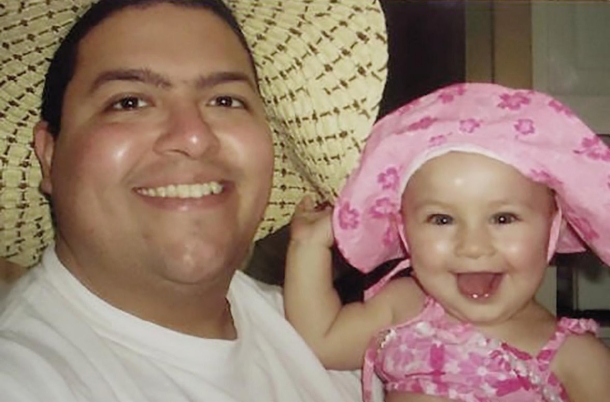LIFE IS OFTEN MEASURED BY MILESTONES.
Many of those milestones bring joy – like the moment your child takes her very first step, or when she graduates high school. Some milestones, though, can bring sadness and heartache. The loss of a pet, for example, or a frightening and life-altering diagnosis.
Like many children, my daughter, Bella, has had her fair share of milestones. Until a few years ago, her life was defined, not so much by first steps or middle-school graduations. Instead, her milestones were marked by doctor's appointments, emergency room visits, and countless medications that affected her quality of life. We tracked life by the number of seizures she experienced, recovery time, and school activities missed. Events that should have been celebrations – birthdays, first days of school, favorite holidays – were often marred by worry and anxiety. My wife, Shannon, and I were constantly in a holding pattern, waiting for Bella's next seizure and hoping against hope that it would be her last.
Our story is not unusual – especially when compared to the stories of other parents and caregivers, who also love and care for someone with a disability or chronic illness. We've had ups and downs – but I count myself lucky because we've had the chance to watch as our daughter, now 17, gets a second chance at a life that we never thought would be possible for her.

MILES TO GO: When Bella was little, doctors told Chris and his wife, Shannon, that Bella wouldn't be able to live a normal, independent life. With the help of seizure control, Bella is getting ready to go to college.
A MAJOR MILESTONE: BELLA'S FIRST SEIZURE AND DIAGNOSIS
At just 18 months old, Bella experienced what we now know was her first seizure. At the time, her seizures presented as blank stares, and we began to notice her "zoning out" during playtime, for example. We didn't think much of it, even chalking it up to one of her many cute quirks, just like her unforgettable sweet yawns, or those looks she give us when she had the hiccups.
Two months later though, she got sick and needed to be hospitalized. It wasn't until then that a doctor clued us in. Our sweet, playful, brilliant daughter, the very same one we'd imagined sav
ing the world someday, was experiencing seizures. The doctor told us that we should get an appointment to see a neurologist right away. Looking back, this hospital visit would be the first of many unexpected milestones, and the very start of our journey, caring for and loving someone with drug-resistant epilepsy.
We soon received the official diagnosis of epilepsy, from a neurologist. After studying her EEG, our neurologist told us the very thing that haunts every parent's worst fears. Bella would not be able to live a normal life. She would not graduate high school, and she would not be like her peers. In fact, we were told to prepare for a life that would be difficult for not only her, but us, who would most likely need to provide her with long-term, 24-hour care for the rest of her life.
Suddenly, all of those milestones we'd dreamed of as new parents: hearing her first word, cheering her on at little league soccer tournaments, seeing her off to school dances, and dropping her off at college, were gone in a blink of an eye. In a matter of what felt like just a moment, we were whisked away into a world measured by weekly doctor's appointments, countless tests, hospital stays, and treatment after treatment. All of which would soon define Bella's childhood, and our first decade as parents.
GROWING UP WITH EPILEPSY
We measured the years that followed by more testing, hoping that it would bring us one step closer to a treatment for our little girl. We'd watched as Bella's seizures increased, seemingly untouched and uncontrolled by the always-changing cocktail of medications that her doctors prescribed. "Big seizures" caused her to lose days to recovery and often resulted in memory loss. For years, we watched helplessly as Bella's beautiful mind struggled to keep up in school, maintain friendships. We watched painfully as she dropped out of activities she'd once loved and forgot even the simplest of things, like how to tie her shoes or how to spell her own name.